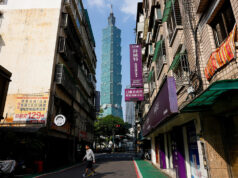PNP to consider Ateneo study on drug war
THE Philippine National Police (PNP) said that it is open to suggestions from other sectors including the academe on improving the government’s campaign against illegal drugs, following a recent study by Ateneo Human Rights Center (AHRC) which scrutinized the conduct of the government’s “Oplan Tokhang” anti-drug campaign.
“I welcome the release of findings and conclusions of a study made by the Ateneo Policy Center on the PNP anti–drug campaign, particularly on the left hand approach that encourages drug offenders to submit themselves to voluntary rehabilitation and reform,” PNP chief General Oscar D. Albayalde said in a press briefing at Camp Crame on Monday, April 29.
The AHRC released last week a study or working paper titled, “How Change Rendered Human Rights More Vulnerable: Examining the Anti-Drug Campaign Legal Framework with a Human Rights Lens,” which flagged, among other things, circulars that operationalized the drug war as violating human rights.
“We are willing to listen and engage all sectors, including the academe, that are concerned and willing to assist the PNP in the fight against illegal drugs,” Mr. Albayalde said.
“PNP is open (to) any suggestions that will improve on our law enforcement, ‘yung aming pagtataas ng standard namin (as to how we can raise our standard). Of course, (on) how do we enforce the law. Baka meron silang (Maybe they have a) bright idea, because they are in the academe.”
A circular signed in July 2016 by then-PNP chief Ronald dela Rosa establishes Oplan Tokhang as “the conduct of house-to-house visitations to persuade suspected illegal drug personalities to stop their illegal drug activities.”
Ateneo said that the vagueness and lack of accompanying details in that first circular can serve as a license for police personnel to commit violations of the Bill of Rights.
“(T)he PNP Double Barrel Circular does not give clear details (on) how this should be operationalized, unlike how the PNP Anti-Illegal Drugs Manual details specific rules and procedures when conducting anti-illegal drug operations,” the research paper said.
The study also cited different types of “persuasion” by police authorities in conducting anti-drug operations.
“Other persuasion attempts were accompanied by a visible show of force or the use of vague or veiled threats. All these are accounts showing that persuasion assumes the color of custodial investigation in many ways,” the researchers said.
The working paper is qualified as “a draft in progress” and cites as authors Ma. Araceli B. Habaradas of the Ateneo Law School and Ray Paolo J. Santiago, Jaymie Ann R. Reyes, and Marianne Carmel B. Agunoy of the Ateneo Human Rights Center.
In response, Mr. Albayalde said: “They are not (the) proper body to say that it is constitutional or not, hindi sila ang Supreme Court (They are not the Supreme Court)…Pangalawa (Second) , that is voluntary in nature. Paulit-ulit po natin sinasabi na wala pong ginamit na pwersa dito at wala pong namatay (We always emphasize that no force was employed here [in the conduct of our operations] and no one died) because of Oplan Tokhang….Nag-surrender sila for rehabilitation (They surrendered for rehabilitation).”
Official data as of Feb. 28 cite 5,281 drug suspects killed since July 2016, when President Rodrigo R. Duterte launched the anti-illegal drugs campaign. Meanwhile, 74 uniformed personnel were arrested in anti-drug operations.
The PNP chief added: “Baka may pwede pa silang idagdag sa ginagawa naming (Maybe they can add something to our) internal cleansing program. This is the very reason why we have the internal cleansing to balance our operations, to make sure that our policemen on the ground will not abuse [their power].”
Mr. Albayalde also pointed out that some 200 policemen were injured or killed in anti-drug operations as of this month. — Vince Angelo C. Ferreras



